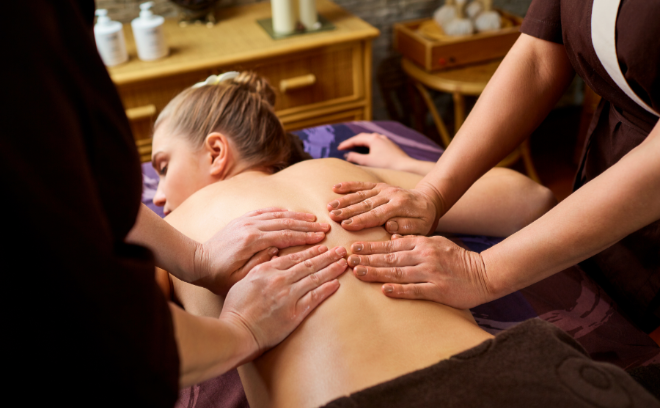Touch is the most primitive form of healing. Its power transcends language and culture, bringing comfort, promoting growth, and igniting a sense of connection. Within this universal language lies the art of massage therapy, an often-underestimated healer in the tapestry of modern society.
What is Massage Therapy?
At its core, massage therapy is the manual manipulation of soft body tissues (muscles, connective tissue, tendons, and ligaments) to enhance a person’s health and well-being. It offers an approach to overall wellness that is as old as humanity itself and as indispensable as modern medicine.
Massage therapy is not merely a luxury; it’s a vital component of health regimens for millions around the world that can have a significantly positive impact on physical health.
Pain Relief
Studies show that massage is effective in reducing chronic pain, a condition that affects millions worldwide. It works through several mechanisms, including endorphin release, improved blood flow, and the mechanics of touch that signal the brain to redirect its attention from pain.
Improved Circulation
Proper blood circulation is essential for transporting oxygen and nutrients to the body’s cells and removing waste. Massage assists in improving this system by dilating blood vessels and by stimulating additional circulation pathways.
Enhanced Immune System
The lymphatic system is crucial for immune function, yet it doesn’t have a pump like the heart for the circulatory system. Massage can act as an impetus for lymph flow, potentially playing a role in the body’s defense mechanisms.
Rehabilitation and Injury Recovery
For athletes and non-athletes alike, injuries are an inevitable part of an active life. Massage helps in the recovery process by reducing inflammation, increasing flexibility, and breaking down scar tissue, thus restoring normal function to muscles and joints.
Mental Health Benefits
In an age where mental health is increasingly under scrutiny, massage therapy shines as a beacon of serenity for those grappling with psychological challenges.
One of the most recognized benefits of massage therapy is its profound ability to reduce stress levels. Through the release of serotonin and oxytocin, massage helps in creating a sense of tranquility.
Numerous studies support the claim that massage can significantly reduce symptoms of anxiety and depression. It offers a non-invasive, drug-free method of managing these disorders, promoting relaxation and improved mood.
The modern epidemic of poor sleep can also find relief in the hands of a massage therapist. Massage has been linked to enhanced sleep quality by addressing underlying dysfunctions that hinder a restful night’s sleep, and the relaxation it induces can also promote the onset of sleep.
The ripple effect of massage’s relaxing benefits reaches far beyond the treatment table. Regular massage has been associated with an overall increased sense of well-being, fostering a more positive outlook on life.
Touch is our first sense to develop, and it remains a powerful tool for social and emotional bonding throughout our lives. When shared with friends or loved ones, it can deepen the connection and understanding between individuals, transcending verbal communication.
As massage draws our attention to our body, it acts as a mirror for self-awareness. Regular sessions can help individuals to become more attuned to their physical and emotional states, fostering a deeper understanding of self.
It is evident that this ancient practice continues to wield immense influence on the physical, mental, and emotional domains of human existence. By embracing and advocating for massage therapy, we not only enhance our individual lives but also contribute to a more caring and interconnected society. In recognizing the healing power of touch, we acknowledge a profound truth: that human touch has the extraordinary ability to touch the very soul.


Recent Comments